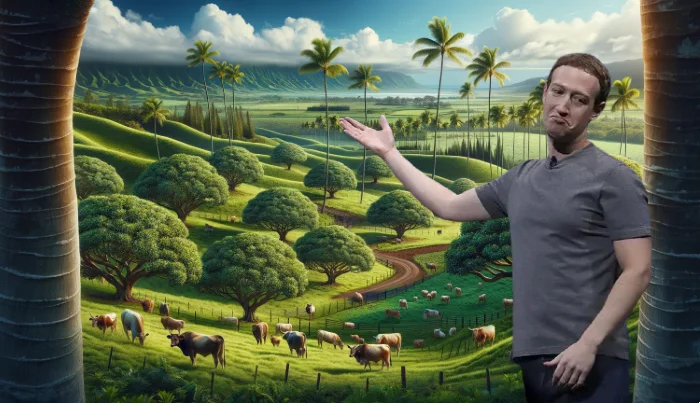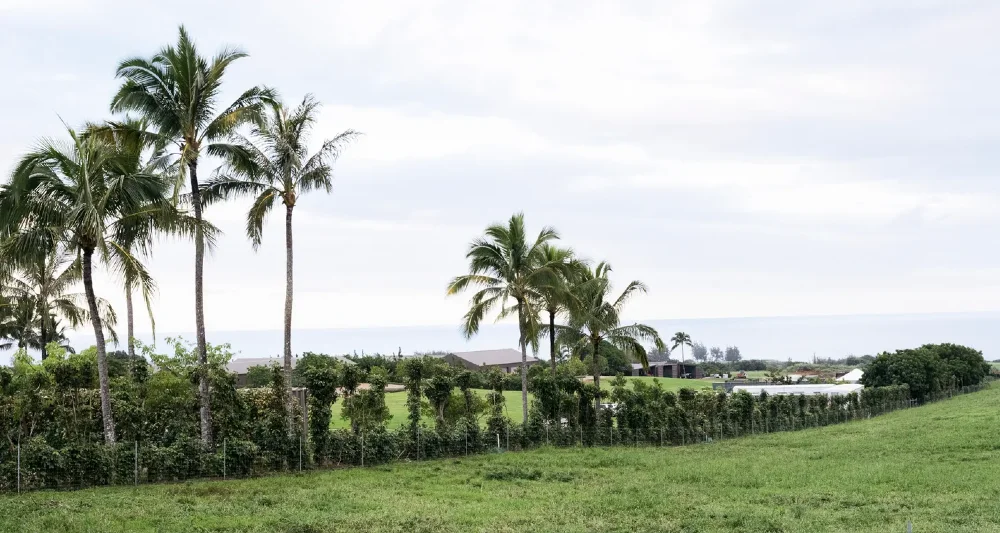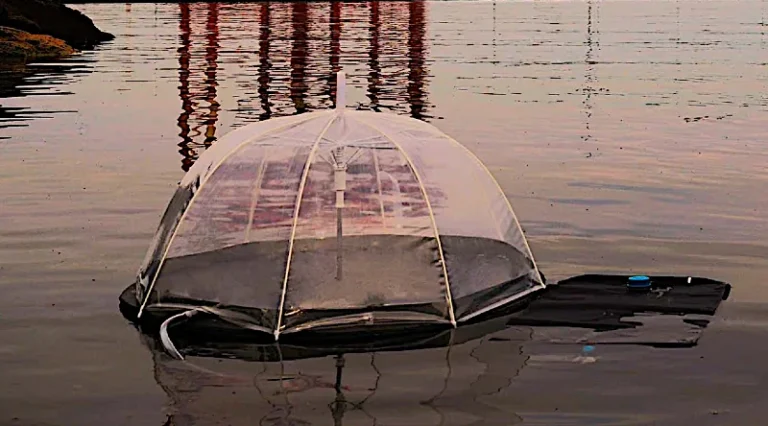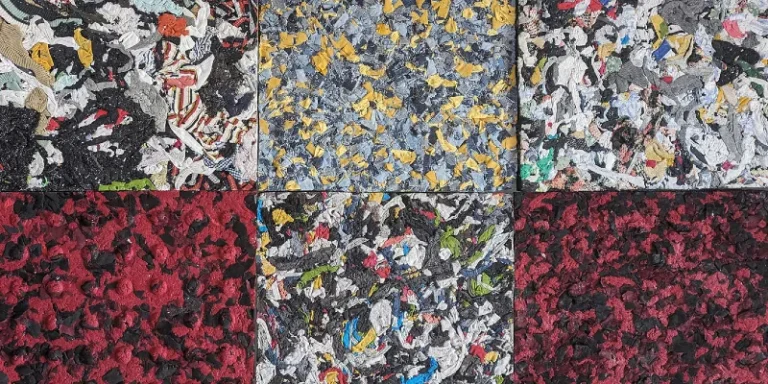Mark Zuckerberg, the social media magnate, has sparked controversy with his latest venture: an upscale cattle-raising project on his vast Hawaiian estate. Critics are blasting this operation as both a tone-deaf display of wealth and a potential environmental hazard.
More To Discover
- A Remarkable Leap Towards Achieving Unlimited Fusion Energy
- Greenhushing Trend Surges: Companies Shy Away from Touting Environmental Progress, Study Finds
- Texas A&M Researchers Explore Black Soldier Fly’s Potential in Tackling State’s Manure Issue
- MIT’s Solar-Powered Desalination System Could Produce Freshwater Cheaper Than Tap Water For Most Of The World
Zuckerberg recently shared an image on Instagram where he’s seen savoring a steak from his 1,400-acre Ko’olau ranch on Kauai, Hawaii’s most ancient island. His caption revealed ambitions to produce “some of the highest quality beef in the world” through his ranch.
This pursuit of culinary excellence comes with a hefty ecological price tag. The Meta CEO, whose fortune is estimated at $129 billion, feeds his cattle a diet of macadamia nuts and beer, both produced on his $270 million estate ($100 million for the main construction and $170 million in land purchases).
This estate, apart from the cattle project, includes lavish features like an underground bunker and energy initiatives.
Mitch Jones, policy director at Food & Water Watch, criticized Zuckerberg’s project as a “billionaire’s strange sideshow.” Jones emphasized the urgent need for agricultural reform to tackle inequalities in the food system and the growing challenges of climate change. He advocated for supporting smaller farms that aim to feed a broader population, not just the affluent few.
Zuckerberg’s approach to cattle rearing isn’t just extravagant; it’s potentially harmful to the environment. Beef production is known to contribute significantly to deforestation, water pollution, and global heating. Climate scientists have repeatedly warned that beef consumption needs to decrease, particularly in developed countries, to mitigate the worst impacts of the climate crisis.
A fully grown cow, the type Zuckerberg is raising, can emit up to 132 gallons (500 liters) of methane daily, accounting for around 3.7% of all greenhouse gas emissions. This fact is particularly concerning, as methane, primarily released through cattle belches, is a highly potent greenhouse gas. Over 20 years, it can cause about 85 times more warming than CO2, according to the Intergovernmental Panel on Climate Change and the UN’s Food and Agriculture Organization.
The response to Zuckerberg’s new endeavor on X, a social media platform owned by his rival Elon Musk, ranged from mockery to criticism.
Andrew Greenberg, an author and journalist, sarcastically praised Zuckerberg for achieving the peak of climate change impact through his dietary choices.

Twitter (X) user Deva Hazarika took a more practical, and amusing, approach by pointing out how much a small bag of macadamia nuts costs.
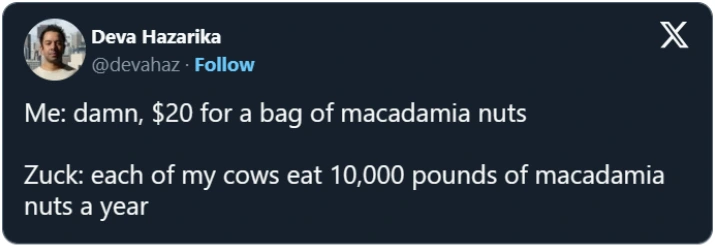
A Twitter user, coloradotravis, expressed astonishment at Zuckerberg’s audacity to boast about his artisan wagyu cattle fed on a macadamia orchard during a time of rising populism and economic disparity.
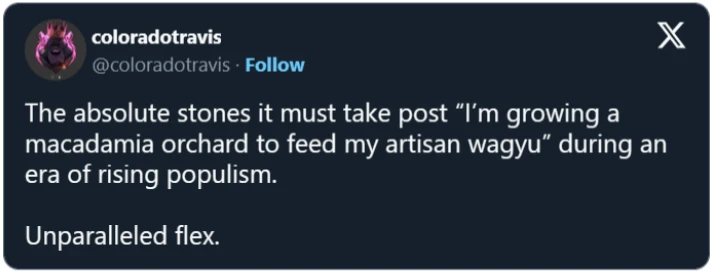
Now, from our perspective, as Dakoa has always been and will always be in favor of capitalism; while we disagree with Mark’s choices, they are his to make on his own property, and he has every right to do so. Just as we have every right to voice the fact that we think his choice is out of touch with reality and just downright stupid.
But, more than that, what surprises us above all else (is anyone really surprised these days at the outlandish behaviors and choices of billionaires?) is Mark’s desire to openly share it all with the world.
Was there a point, a reason, or something to gain for him? No.
- He’s not selling this meat anytime soon, if ever.
- He’s not trying to raise investment funds.
- He’s not attempting to teach, educate or share helpful information with the masses.
So, why would someone worth over $100 billion share such a ridiculous thing with the public, knowing full well that 99% of people reading his post will never be able to afford what he feeds his cows, let alone the beef they produce?
For the same reason that other extremely wealthy people, like Elon Musk, share anything these days. Attention.
As Rosie O’Donnell once said, “Fame is a drug.”
In an era increasingly defined by environmental consciousness and economic inequality, Zuckerberg’s high-end cattle-raising project, while ambitious in its culinary goals, strikes many as a tone-deaf and potentially damaging venture, disconnected from the pressing realities of our times.







